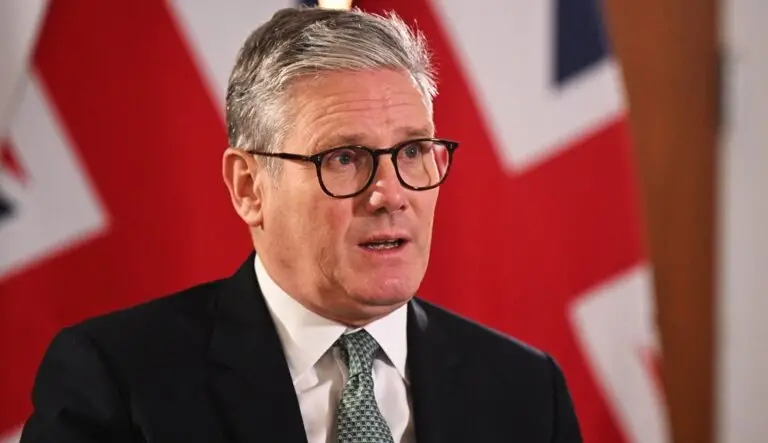LONDON, United Kingdom (AFP) — In a recent broadcast, British Prime Minister Keir Starmer emphasized the urgent need for businesses to improve worker training in the UK, declaring that he will “not tolerate” ongoing failures in this area. His comments come as part of a broader strategy aimed at reducing migration levels.
Net migration in the UK has surged in recent years, with a record high of 764,000 people recorded in 2022, up from 685,000 the previous year. This increase has been largely attributed to non-EU citizens, raising significant political concerns since immigration has been a contentious issue since the 2016 Brexit referendum.
The end of the automatic rights for EU nationals to live and work in the UK, following Brexit in 2020, has exacerbated staffing shortages across several key sectors. Starmer acknowledged the challenges faced by industries such as construction and care, both severely impacted by labor shortages. He assured businesses that while the government would not adopt an “anti-business” stance, there must be a shift towards investing in local skills.
“I’m not going to tolerate this year after year after year,” Starmer stated during an interview with BBC radio, underscoring his frustration with the lack of progress.
His government is under increasing pressure to tackle both undocumented migration and the number of individuals entering the UK on employment visas. As part of his proposed measures to address the historically high levels of net migration, Starmer announced plans for annual skills shortage assessments and stricter regulations on visa sponsorship.
The Prime Minister noted that sectors heavily reliant on overseas workers would be scrutinized to ensure they are actively investing in domestic skill development. “That signals to me that something is going fundamentally wrong,” he remarked, highlighting the discrepancy between visa applications for certain jobs and the declining number of apprenticeships available in the UK.
Starmer aims to implement a comprehensive skills strategy to reduce reliance on migration and ensure that the country possesses the necessary skills to meet its labor demands. While he acknowledged the vital contributions that migrants make to the UK’s economy and public services, he expressed concern over the lack of training opportunities for young people in the country.
“I want to see a skills strategy that makes sure we’re less reliant on migration, that we’ve got the right skills we need in this country,” Starmer asserted, calling for a concerted effort to revitalize worker training and development initiatives across the nation.

